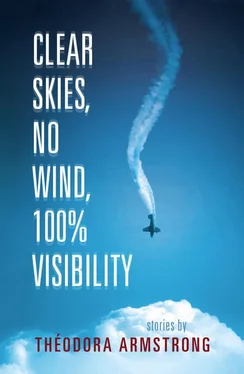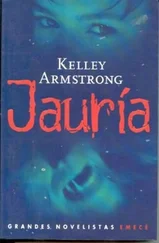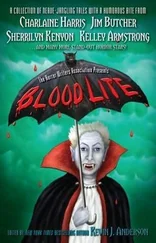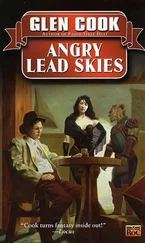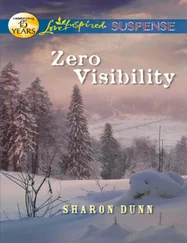The only seats left surround the group of drunkards. I take one in front of them and focus out the window as the bus pulls away. I suddenly feel completely out of place in my hometown, out of place on this bus next to my own sister. Everything feels wrong; my bare feet on the dirty floor, my head nearly touching the ceiling, the friction of my wet bathing suit on the vinyl seat. I miss the cool white walls of my eleventh-story condo. Watching Carin I see everything I’m not. She’s already made a friend, chatting up one of the better-looking guys in the group. He opens a beer and hands it to her and she slides in beside him. She tells a loud dirty joke and the back of the bus erupts in laughter, but when she looks over at me I find it hard to even smile.
CARIN AND I NEARLY died on the channel one year and to this day she still refuses to take responsibility. We used to float down weekly, Mom piling us into the pickup with our inner tubes tied down in the truck’s bed. It was a great way for her to get rid of us for a couple of hours, dumping us into the channel at the Okanagan end and picking us up later in the parking lot across from Skaha.
One afternoon, standing side by side on the banks, Carin wanted to tie our two inner tubes together with rope so we wouldn’t float apart. The channel was high and fast that year, water licking at the edges, pulling along rocks and clumps of grass, and Carin was scared. With my legs braced against the icy water and my inner tube bouncing around my waist in anticipation, I shouted at Carin to hurry up and get in. She was going through a phase where she never wanted to be more than arm’s reach from me. “She’ll grow out of it,” my mother kept repeating. “One day she won’t want to have anything to do with you.” When I started to lose feeling in my toes from the freezing water, I finally agreed to let Carin tie the tubes together, but I made her promise not to talk to me if she was going to be clinging for the entire ride.
The first bridge the channel passes under is bisected by a large concrete support wall, and even from a distance I could see the water breaking around the pillar, creating a foaming mouth that wrapped around either side of the cement wall. When we reached the bridge Carin went on one side and I went on the other, the rope holding in the middle, balancing our equal weights. I clung to the wet rubber tube, afraid to let go and be sucked underwater by the strong current, my legs battering helplessly against the concrete as water poured over my head. Part of the rope wrapped around my calf and I kicked wildly to stay afloat, fumbling with the twine that linked our tubes, but the knot was on Carin’s side. I screamed at her. “Carin, untie us! Carin, you dingbat!” It was hard to hear her over the roar of the water, but she kept calling my name and I could hear her sobbing. Every time I screamed at her, I swallowed a mouthful of water. “It’s your fault! Carin! Your fault!”
The man came from my side of the channel. I hadn’t noticed him sitting there in the dark angle of the bridge, watching me hang on for dear life. He was standing up the bank a ways, making swimming motions with his arms, but I ignored him. His scraggly hair reached down past his shoulders and he wore dirty jeans and an unbuttoned shirt that displayed a hairy, tattooed chest. He fit the description of men our mother warned us not to trust. I watched him walk up the bank a bit further, take off his shirt and his crummy boots, and wade into the water. He fought the current out to the middle of the channel and then floated placidly toward us like some sort of grizzled river nymph. He straddled the concrete wall and pulled a knife out of nowhere as the water swelled around him. With one quick flick of the blade he slit the rope and set us both free. I floated away so serenely that for a moment the whole thing seemed like a dream, but when Carin’s inner tube drifted toward me without her, my heart stopped. Still on my tube, I tried to paddle upstream to find her, but the current was too strong. Finally I spotted her coming out from under the bridge, flailing through the water. I kicked downstream where it was shallower to catch her tube, and then stood to watch her thrash messily until she was practically under my nose. Her eyes were puffy and red from crying. “You can touch, dummy.” Those were the only words I said to her for the rest of the ride. The incident was another point of proof toward everything I already knew — that Carin was my responsibility, that I would always be watching out for her and she would be hanging on tight, like that rope around my ankle.
THE BUS DEPOSITS US right in front of the Sunnyside trailer park and we pad barefoot across the hot asphalt into the cool shade of the willows that line the road. Carin has a lot near the channel, close enough that the ducks wander over for bread crusts and if you look hard you can get a glimpse of the water sparkling between the trees. “Want a tour?” Carin says, hopping up the little steps to the trailer.
“I’ve been in there before.” I drop into one of her lawn chairs.
“I’ve upgraded,” Carin says, disappearing inside.
“Where’s Mom’s truck?” The hitch trailer is noticeably missing our Mom’s white Dodge. We made the long drive to the coast every summer in that truck to go to the PNE fair. Weeks before we left, it was all I could talk about — the rides I was going to go on, the carnival games I was going to win. As we followed the highway through the mountains, I would get lighter and lighter until I was bouncing around the cab.
“I sold it,” Carin says, from a little window above my head. She was always stunned by the entire trip to Vancouver. She played along, but I don’t think she ever liked going to the city. I had to drag her onto all the rides at the fair. She missed the ducks. She missed the lake.
“Never used the truck anyway,” Carin says, coming back down the little trailer stairs with two bottles of beer.
“I would’ve bought it from you.”
“What do you need a truck for in the city?”
“That’s not the point.” All the coolness from the channel ride has left my body and I feel overheated and annoyed.
“Would’ve been a bitch to park downtown,” Carin says, taking a drink from her beer.
“Doesn’t it seem pointless to have a hitch you can’t actually hitch to anything?”
“Where would I go, anyway?”
“I don’t feel like beer,” I say, heading into the trailer to find something else to drink. The living area with the kitchen and fold-down dining table are the same, except for the new flatscreen in the corner. There are clothes scattered across the black leather couch and breakfast dishes on the table. I open the fridge — it’s mostly empty and smells of sour milk. To get to the bed, Carin has to climb past the breakfast benches. There’s a little tan-coloured curtain for privacy.
“I would’ve cleaned up if I knew you were coming,” Carin says when I come back down the steps with a glass of water.
“You don’t have a phone,” I sigh.
Two ducks waddle onto the lot expectantly. I reach out to the one closest and it snaps at my finger.
“Yeah, he’s a nasty one,” Carin says. She goes back into the trailer and comes out with a bag of bread, pulling out a slice and throwing the entire thing at the duck’s head. He snatches it and drags it behind a tree, flapping at the other ducks approaching him. “Don’t take it personally.”
“Do you have power?” I ask, pulling my phone and charger from my bag.
“Of course. Didn’t you see my TV?”
“So you can afford cable, but no phone.” I unload a tent from the back of the car and begin arranging the poles by size on the gravel.
“The phone is more of a lifestyle choice.”
Читать дальше
